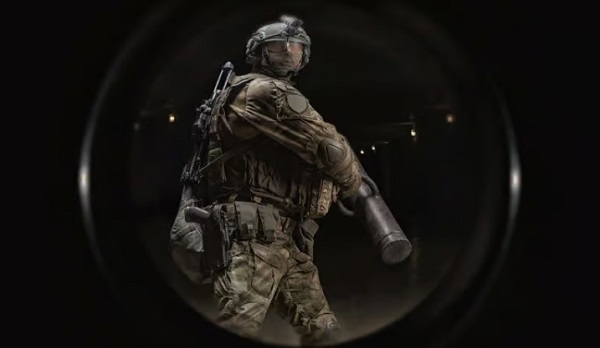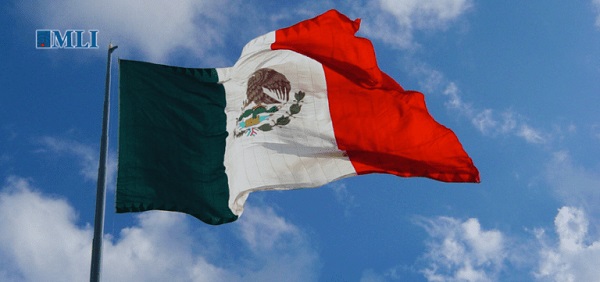MAiD
Canadian man euthanized after COVID shot injuries

From LifeSiteNews
An Ontario man in his late 40s has been euthanized after doctors diagnosed him with ‘post COVID-19 vaccination syndrome’ following three COVID jabs, which caused him to suffer ‘severe functional decline.’
An Ontario man has been granted euthanasia for “post COVID-19 vaccination syndrome.”
According to an October report by the National Post, an anonymous Ontario man in his late 40s has been euthanized after doctors determined his COVID shot injuries qualified him for assisted suicide or “Medical Assistance in Dying” (MAiD) under Canada’s euthanasia regime.
“Amongst his multiple specialists, no unifying diagnosis was confirmed,” the reports issued by a 16-member MAiD death review committee found.
Nevertheless, the doctors “opined that the most reasonable diagnosis for Mr. A’s clinical presentation (severe functional decline) was a post-vaccine syndrome, in keeping with chronic fatigue syndrome.”
The man experienced “suffering and functional decline” following three doses of the experimental COVID shots.
He also suffered from a slew of mental illnesses, including depression, post-traumatic stress disorder, anxiety and personality disorders. He was admitted to the hospital twice “while navigating his physical symptoms” with thoughts of suicide.
He was eventually diagnosed “post COVID-19 vaccination syndrome,” which is not currently include in Canada’s current vaccine reporting system. Notably, Canada’s program to compensate those injured by the so-called “safe and effective” COVID shots has now spent $14 million, but the vast majority of claims remain unpaid.
His death is further complicated by the fact that multiple specialists failed to agree on his diagnosis, with many questioning if his condition met the criteria for an “irremediable” condition, which is required to seek euthanasia in Canada. Many also questioned if his mental health disqualified him from undergoing assisted suicide.
The man’s death is considered “Track 2,” part of a group who are not “terminally ill” and whose natural deaths are not reasonably foreseeable.
Dr. Sonu Gaind, a psychiatrist and professor of medicine at the University of Toronto, revealed that he is troubled “by almost everything in this report.”
“I think we have gone so far over the line with Track 2 that people cannot even see the line that we’ve crossed,” said Gaind.
“It’s pretty clear that some providers are going up to that line, and maybe beyond it,” Gaind said.
As LifeSiteNews previously reported, internal information has revealed that Canadian doctors are questioning the morality of euthanizing vulnerable and impoverished patients who are choosing death because of poverty and loneliness.
During his time in office, Prime Minister Justin Trudeau and his government have worked to expand assisted suicide 13-fold since it was legalized, making Canada’s euthanasia program the fastest growing in the world.
Currently, wait times to receive actual health care in Canada have increased to an average of 27.7 weeks, leading some Canadians to despair and opt for euthanasia instead of waiting for genuine assistance. At the same time, sick and elderly Canadians who have refused to end their lives via “MAiD” have reported being called “selfish” by their providers.
The most recent reports show that euthanasia is the sixth highest cause of death in Canada. However, it was not listed as such in Statistics Canada’s top 10 leading causes of death from 2019 to 2022.
When asked why it was left off the list, the agency said that it records the illnesses that led Canadians to choose to end their lives via euthanasia, not the actual cause of death, as the primary cause of death.
According to Health Canada, in 2022, 13,241 Canadians died by MAiD lethal injections. This accounts for 4.1 percent of all deaths in the country for that year, a 31.2 percent increase from 2021.
Alberta
Alberta government announces review of Trudeau’s euthanasia regime

From LifeSiteNews
Alberta announced it ‘is reviewing how MAID is regulated to ensure there is a consistent process as well as oversight that protects vulnerable Albertans, specifically those living with disabilities or suffering from mental health challenges.’
The Conservative provincial government of Alberta is pushing back against the Canadian federal government’s continued desire to expand euthanasia in the nation, saying it will launch a review of the legislation and policies surrounding the grim practice, including a period of public engagement.
The United Conservative Party (UCP) government under Premier Danielle Smith in a press release said the province needs to make sure that robust safeguards and procedures are in place to protect vulnerable people from being coerced into getting euthanatized under the MAiD (Medical Assistance in Dying) program.
“Alberta’s government is reviewing how MAID is regulated to ensure there is a consistent process as well as oversight that protects vulnerable Albertans, specifically those living with disabilities or suffering from mental health challenges,” said the government Monday.
The government said a online survey regarding MAiD open to all Albertans who have opinions about the deadly practice will be available until December 20.
“We recognize that medical assistance in dying is a very complex and often personal issue and is an important, sensitive and emotional matter for patients and their families,” said Alberta’s Minister of Justice and Attorney General Mickey Amery.
Amery said it is important to ensure this process has the “necessary supports to protect the most vulnerable.”
The government said that it will also be engaging with academics, medical associations, public bodies, as well as religious organizations and “regulatory bodies, advocacy groups” regarding MAiD
The government said all information gathered through this consultation will “help inform the Alberta government’s planning and policy decision making, including potential legislative changes regarding MAID in Alberta.”
When it comes to MAiD, Prime Minister Justin Trudeau’s Liberal government sought to expand it from the chronically and terminally ill to those suffering solely from mental illness.
However, in February, after pushback from pro-life, medical, and mental health groups as well as most of Canada’s provinces, the federal government delayed the mental illness expansion until 2027.
Alberta’s Minister of Mental Health and Addiction Dan Williams said that the UCP government has been “clear” that it does not “support the provision of medically assisted suicide for vulnerable Albertans facing mental illness as their primary purpose for seeking their own death.”
“Instead, our goal is to build a continuum of care where vulnerable Albertans can live in long-term health and fulfilment. We look forward to the feedback of Albertans as we proceed with this important issue,” he noted.
The Alberta government said that as MAiD is “federally legislated and regulated” it is main job will be to try and make sure that it protects “vulnerable individuals” as much as possible.
Alberta’s Minister of Health Adriana LaGrange reaffirmed that the Alberta government “does not support expanding MAID eligibility to include those facing depression or mental illness and continues to call on the federal government to end this policy altogether.”
The number of Canadians killed by lethal injection under the nation’s MAiD program since 2016 stands at close to 65,000, with an estimated 16,000 deaths in 2023 alone. Many fear that because the official statistics are manipulated the number may be even higher.
To combat Canadians being coerced into MAiD, which LifeSiteNews has covered, the combat pro-life Delta Hospice Society (DHS) is offering a free “Do Not Euthanize Defense Kit” to help vulnerable people “protect themselves” from any healthcare workers who might push euthanasia on the defenseless.
International
Euthanasia advocates use deception to affect public’s perception of assisted suicide

From LifeSiteNews
Politicians claim that moral opposition to assisted suicide (or suicide in general) and euthanasia is religiously motivated and then make the leap to insisting that this means such opposition should be ignored.
Euthanasia activists are currently doing what they do best: the bait and switch.
As the debate heats up in the U.K., all of the familiar tactics are on display. First, of course, there is the relentless lying. Despite the case study of Canada, the Netherlands, and Belgium – and despite disability activists, judges, palliative physicians, and the secretaries of health and justice warning that no “safeguards” will hold – U.K. euthanasia activists are insisting that this time everything will be different.
The response to these critiques has been predictable but infuriating. Euthanasia activists insist that all of this is about religion – that those nasty Christians are, once again, seeking to impose their suffering-based theology on the country. (This despite the fact that even Ann Furedi, who heads up the U.K.’s second largest abortion provider, opposes the proposed assisted suicide law.) One good microcosmic example of this tactic comes from UK writer Julie Street, who posted to X (formerly Twitter):
Just walked out of Mass bloody fuming – our priest used the homily to read a letter from the Catholic bishops telling people to oppose the Assisted Dying Bill then handed out cards with our local MP’s details on to lobby them. Religion has no place in politics or women’s rights.
There is much to say in response, of course. Why is Street so surprised to discover that her Catholic priest and bishops are, in fact, Catholic? Is she ignorant of the religion that she at least appears to practice? How airtight does one’s mind have to be not to see assisted suicide and euthanasia as religious issues? Indeed, “euthanasia” is Greek for “good death” – the theological premises are baked right into the term. Or does Street think that religious people should shut their mouths in the political arena and voluntarily disenfranchise themselves as the fates of the weak are decided?
Is Street also ignorant of the fact that it was largely due to the Catholic Church’s public opposition that Adolf Hitler moved the Nazi’s euthanasia operation underground? (We now know, of course, that the Nazis only claimed to have disbanded the T-4 program.) I thought progressives wanted a Church that stood up for the weak, vulnerable, and dispossessed – and who qualifies more than the sick, elderly, and those with disabilities? Christians are accused of not being loving enough, and then rebuked when they stand up for the victims the political class deems expendable – first the unborn, now those on the other end of life’s spectrum.
But there’s more to this tactic than grating ignorance. Progressives like to play both sides of the fence. Take abortion, for example. Politicians like to claim that it is a religious issue, and that thus they cannot legislate against it due to the fact that we live in pluralistic societies. Many religious leaders are quite happy to follow this logic, claiming that since abortion is a political issue, it cannot be discussed in church. And all the while, the countless corpses of the aborted unborn pile up in the No Man’s Land between.
The assisted suicide debate is unfolding along similar lines. Politicians claim that moral opposition to assisted suicide (or suicide in general) and euthanasia is religiously motivated and then make the leap to insisting that this means such opposition should be ignored. Meanwhile, because politicians are debating the issue, folks like Street can claim that because this is now a political issue, priests and pastors should keep their traps shut. See what they did there? It’s a neat trick, and despite how farcical and illogical it is, it seems to work with maddening regularity.
In fact, the priest Julie Street had the good fortune to hear was standing in the tradition of the clergy who stood up against Adolf Hitler and his eugenicist gang – and fighting the same evil being advanced under many of the same premises, to boot. She should be grateful. If she can’t manage that, she should at least be better educated.
-

 Brownstone Institute2 hours ago
Brownstone Institute2 hours agoThe Most Devastating Report So Far
-

 Economy14 hours ago
Economy14 hours agoCOP 29 leaders demand over a $1 trillion a year in climate reparations from ‘wealthy’ nations. They don’t deserve a nickel.
-

 Alberta12 hours ago
Alberta12 hours agoOn gender, Alberta is following the science
-

 Energy13 hours ago
Energy13 hours agoOttawa’s proposed emission cap lacks any solid scientific or economic rationale
-

 Bruce Dowbiggin1 hour ago
Bruce Dowbiggin1 hour agoCHL Vs NCAA: Finally Some Sanity For Hockey Families
-

 Brownstone Institute1 day ago
Brownstone Institute1 day agoFirst Amendment Blues
-

 Crime2 days ago
Crime2 days agoMexican cartels are a direct threat to Canada’s public safety, and the future of North American trade
-

 Business2 days ago
Business2 days agoDEI gone?: GOP lawmakers prep to clean house in federal government




